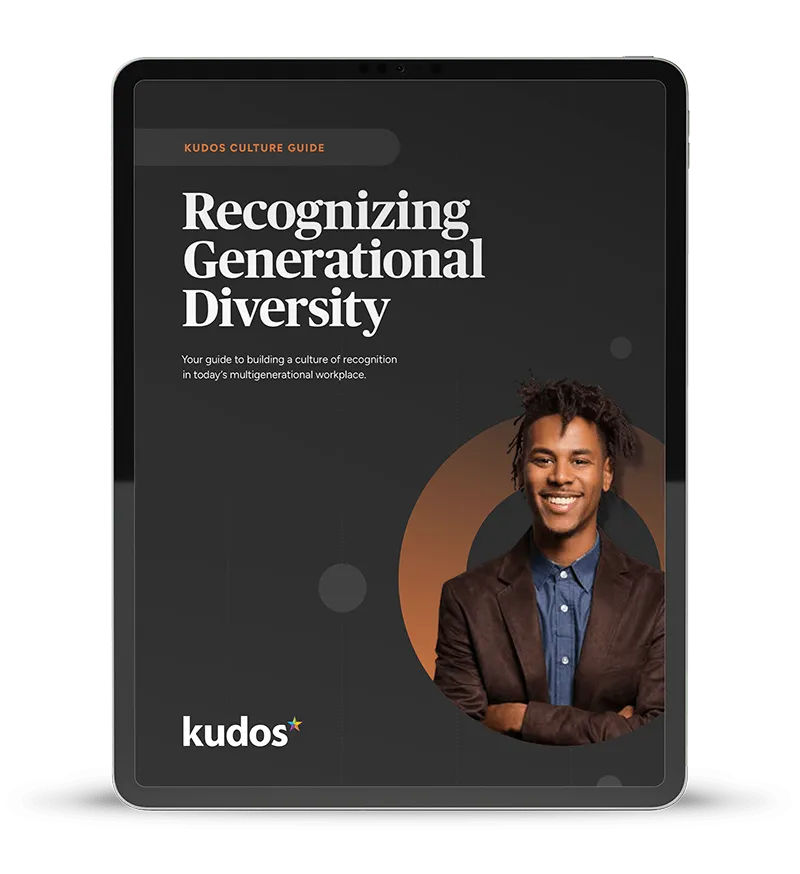Recognition Platforms: Banks of Positive Reinforcement
Recognition
February 4, 2023
Abby Parker
X min
Recognition
February 4, 2023
Abby Parker
X min

When you’re recognized for accomplishing something great, where does that feeling go after the moment has passed?
According to a study on autobiographical memories (moments that make up your life story) each of our memories serves different functions. Here are three important things to know about the nature of memory:
The first, and most evolutionary function of our memory is directive. This function helps us problem solve, plan, feel inspired, and get motivated. This function zeroes-in on the central conflict of a memory, so we can find a clear solution.
“Negative events would cause the individual to focus on and encode the aspects of the events that are necessary in order to solve the problem and prevent future mistakes.”
The study finds that our brains take longer to recall directive memories, and in many cases, they need to be triggered.
When you make a mistake at work, for example, forgetting to include an attachment to an email, you’re probably less likely to make that mistake again in the near future.
This function gives our life-events context, meaning, and purpose. Self-memories are the most central to our identity.
We use these memories to gain a better, more cohesive understanding of our identity over time. They act as reference points throughout our lives to judge where we’ve been, where we are, and where to go from there.
Self memories include things like how far you’ve come in your career, goals you’ve achieved and milestones you’ve accomplished.
Possibly the most self-explanatory of the three, the social memory function helps us connect with others. In fact, social memories can only be created by connecting with others — through conversation or otherwise.
The last time you told someone a story about your life, chances are you wanted to find common ground — shared interests. You were sharing memories for the purpose of creating new ones. Telling your story to persuade, provide comfort, bond, or draw out empathy is part of the social memory function.
Social memories can include times you’ve bonded with friends and family or when you first felt accepted by coworkers, for example.
The study’s participants’ most negative memories had more directive function, while their most positive memories had more self and social functions.
It’s easy to dwell on our weaknesses when they could make or break our chances of employment. This may ring even truer for today’s young workers (millennials and gen z), who often feel the need to “make it,” or prove their worth among more established coworkers.
Although it’s in our nature to take direct, clear lessons from negative memories, we should be more proactive about learning from positive ones.
Rather than making comparisons — either to competition or to our past selves — to feel motivated, we need positive social recognition. And we need to make it a habit.
Recognition should always be accessible. Platforms like Kudos keep each moment of social recognition in one place. Instead of waiting on directive memories to trigger motivation, you can access a bank of positive inspiration.
“If you think about recognizing someone in person, giving them a pat on the back, they disappear into the ether after the moment’s passed.” says Muni Boga, President and CEO of Kudos. “When you’re working with a recognition platform, you’re creating a record of it happening. That record belongs to the person receiving the recognition, the person giving it, it’s something really special that people have.”
Dedicated recognition platforms provide built-in opportunities to create and document positive directive, self, and social memories.
Each recognition message is a great source of joy and reflection on your work. The right employee recognition platform is an archive of empowerment for every team member involved, and it can be added to every day — for every contribution.
Beyond pick-me-ups, recognition messages can be used to reinforce your value to an organization. In your next performance review, for example:
A lack of recognition in any work environment creates siloes, or isolated groups. In a culture where recognition is few and far between, people revert to gaining motivation or lessons from negative memories. And without positive social recognition, people use their self-memories to judge if they’re in the right place to achieve their goals.
“Employers have flagged the fact that their people aren’t feeling recognized.” – Muni Boga, CEO of Kudos
In a culture of recognition, not only are people more aware of acts of kindness, but they’re more aware of their coworkers’ strengths. When each member of an organization supports the others for what they bring to the table, the result is dynamic, adaptable, and resilient.
Before the shift to remote and hybrid working environments, employees weren’t feeling recognized, and the same problem exists through the screen. It’s just as, if not more important for a company’s culture to translate in virtual spaces.
An employee recognition platform that can be accessed from any device, anywhere, and at any time is an invaluable asset for teams who can’t be in the same room. Kudos is an innovative, and intuitive social tool to bond your teams and create memories.
With built-in analytics, leaders can see the evolution of their teams’ skills, and uncover strengths that would otherwise go unnoticed. Kudos’ built-in dashboards give deep insights into the dynamics of your teams, without human oversight. What sets Kudos apart is a care for both individuality and community.
Recognition is many things; a statement, a feeling, and something we all deserve. A thoughtfully designed program nurtures the experience of recognition, so you can truly be part of something worth remembering.

A newsletter with the best resources for HR professionals.


Your guide to building a culture of recognition in today’s multigenerational workplace.
Get Your Guide